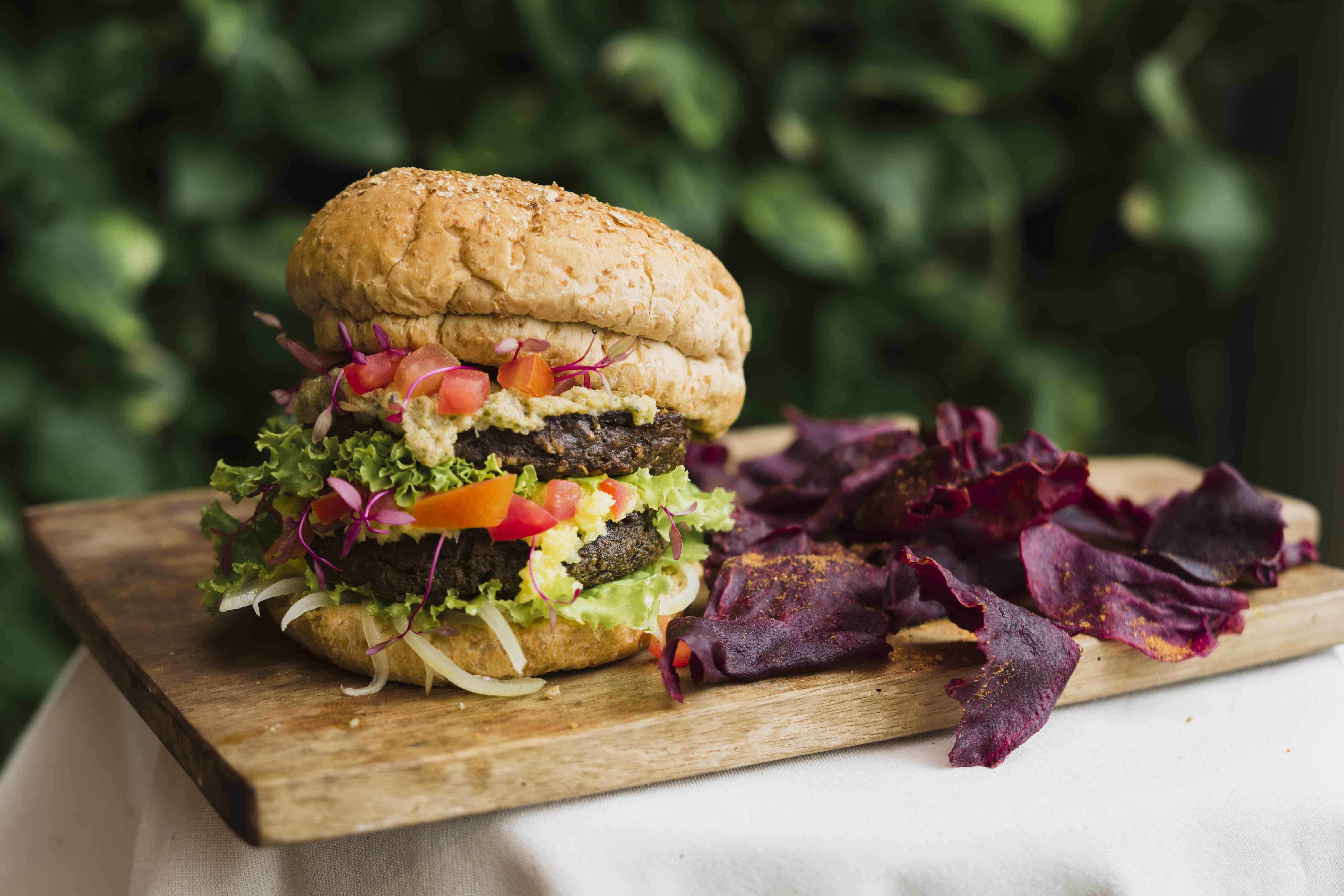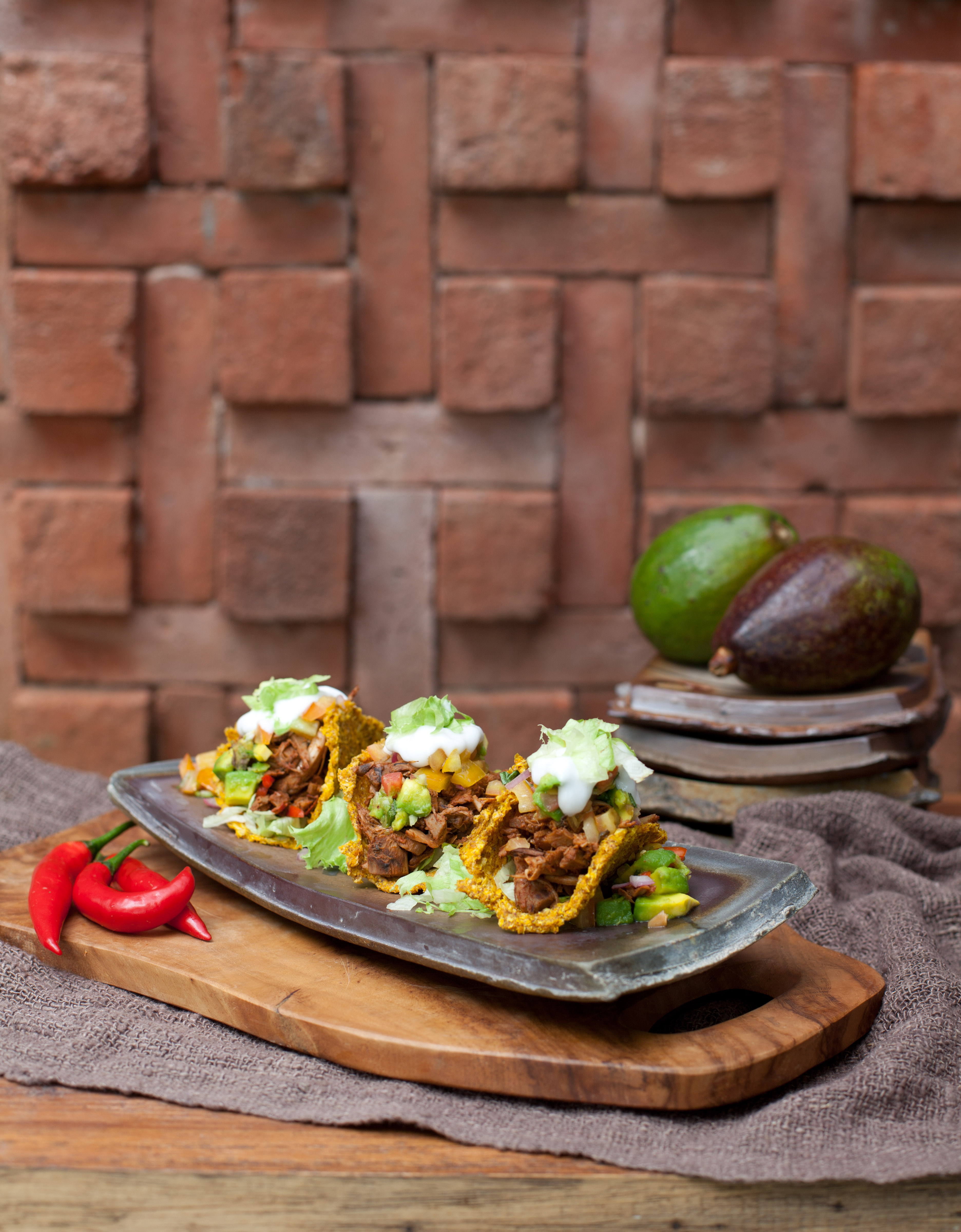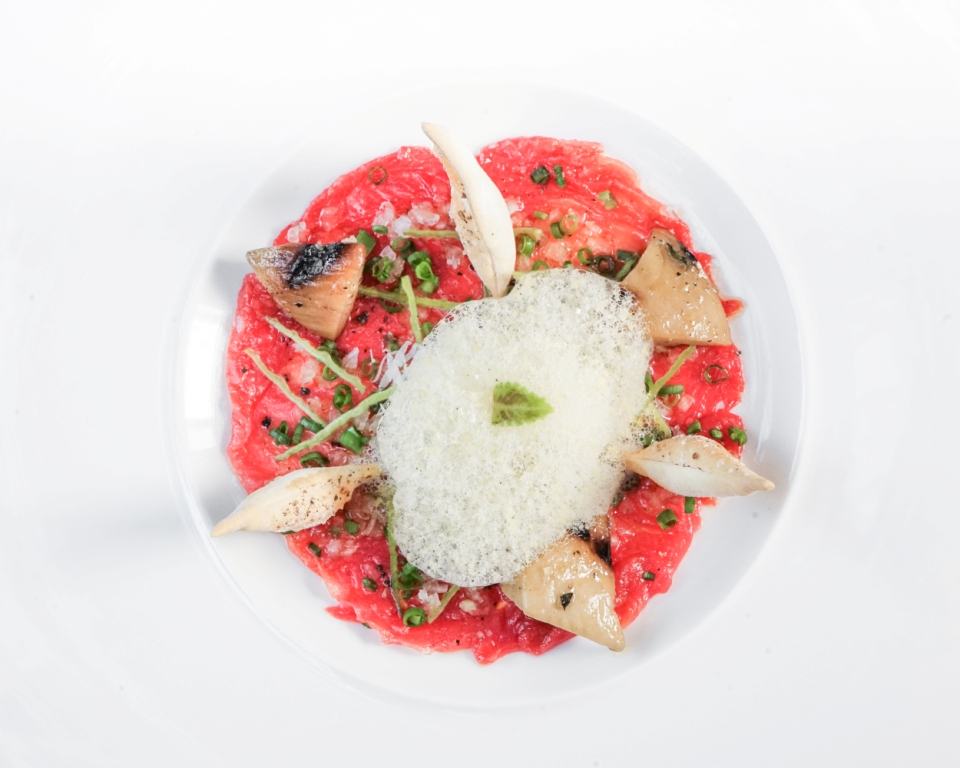
Plant-based food has been gaining traction across the world. In response to climate change and irresponsible industrial animal farming, eating more plants is fast becoming a sound choice for more and more people. While committing to a vegan lifestyle is not for everyone, having a plant-based diet gives flexibility to those who still crave for a good cut of steak on the weekend. “Plant-based diets were the diets we used to follow before the industrial age, so they’re very much part of our DNA. A plant-based diet doesn’t mean exclusively plants. It means pre-dominantly plants with some animal sources which can be meats, fish, eggs or poultry. Percentage-wise, this can mean anything from 40-80% plants based with the remaining part of the diet made up from proteins and fats,” explains Miles Price, consultant nutritionist of Four Seasons Resort Bali at Jimbaran Bay in an interview in our March issue.
The key of a balanced plant-based diet is substituting all the processed carbs like pasta, breads, pastries and rice for whole, unprocessed vegetables and fruits as the source of carbohydrates. “Eating more vegetable has an anti-inflammatory and metabolic-balancing effect, reducing risk of cardiovascular and cancer-related diseases,” adds Price. It is also known to boost the immunity. The diet alone can’t prevent COVID-19 but eating more plants with its antioxidant, nutrients and vitamins certainly keeps our cells healthy to fight off any potential infections. Here’s a list of ingredients you should put in your shopping cart.
Plant-based proteins
Do you know that tempe is high in protein and contains iron, calcium, riboflavin, niacin, magnesium, phosphorus, and manganese? Yes, basically all the minerals that our body needs, plus prebiotics for our digestive system. Together with tofu, both soybean-based proteins are versatile. Seitan – although not recommended for those with gluten sensitivity – is also a great meat substitutes. Give Impossible and Beyond Meat ranges a try.
Carbs
When it comes to carbs, opt for the whole grains and starchy vegetables. Grains such as brown rice, rolled oats, barley, bulgur, millet, sorghum, and freekeh take longer to break down and provide lasting energy than simple carbs like white rice. Starchy vegetables provide delightful possibilities for savoury or sweet meals made of butternut squash, sweet potato, yams, pumpkin, and corn. Recently, yam-based shirataki rice and noodle are getting more popular due to its low-calorie and low-carbs content.
Legumes, nuts and seeds
High in fibre, protein, iron, zinc, folate, and potassium – beans definitely make a tasty substitute for meats. It contains no fat, can be easily stored in your pantry and goes with any recipes, from salad to curry. Lentils, chickpeas, black beans, lima beans, split peas, adzuki beans, kidney beans, and fava feans can easily be found in the market. Store dried beans in tight-fitting lids containers to retain its shelf life.
Nuts and seeds are rich in vegetable oils and protein. Nuts are great for snacking (there is no such thing as too much macadamia while watching movies at home) and add extra layers of crunchiness in salads or pastas. Almonds, cashews, pistachios, peanuts are your best friends. Seeds such as sesame, chia, quinoa, sunflower, flax, and pumpkin are tiny in sizes but provides small burst of flavours, nutrients and energy. Add them in bars, cookies, granola or smoothies for that extra oomph.

Vegetables and fruits
Your mother is correct. Eat your greens. When it comes to vegetables, the greater variety that you consume, the better it is for your body. Optimise your vitamins, minerals and antioxidant intake with this powerful produce. Get the freshest items from your local farms and combine as many colours and textures in your weekly meal plans. Mushroom, cucumber, onion, peppers, carrot, eggplant, broccoli – the limit is your creativity. The same rule goes for fruits. As long as you don’t have to watch your sugar intake, enjoy as many varieties of fruits as you can. Fruits also make for an interesting ingredient in a meal – watermelon proves to be a great addition in a salad bowl and jackfruit apparently make for a tasty meat substitute for rendang.
Oils
You need oils to cook. Lucky for us, apart from the good ol’ olive or fragrant sesame oil, the market is currently flooded with plant-based oils. From the neutral-flavoured canola oil to silky avocado oil, plant-based oils are known as a healthier alternative than the regular palm oil. When it comes to buying oil, get the organic, cold-pressed, virgin or extra-virgin options.

Spices and herbs
It is astounding what spices can do to a dish. Add sumac, as opposed to salt, into a dish and you will get the flavour profile of Middle Eastern cuisine. Ginger is undoubtedly Asian in nature and cardamom will transport you to India in an instant. In the era where travel is restricted, the usage of spices is truly a wonderful way to cure our wanderlust, one dish at a time. Again, there is no limit. Enrich your pantry with as many spices as you possibly can. When in doubt, be sure to have at least these items on your mise en place: Italian seasoning, garlic powder, peppercorn, sea salt, paprika powder, turmeric, cayenne pepper, cumin, and chilli powder.
As for herbs, try to get them as fresh as possible. There is no better time to grow them at home. Basil, thyme, mint, dill, coriander, parsley and others can grow easily in your backyard or window ledge. There are chefs who brazenly create a whole bowl of herbs as salad and who can blame them? They smell so good.
Sweeteners
Apart from honey, there are plenty of sweetener alternatives that you can use when baking or cooking. There are agave, dates, maple syrup, molasses, stevia, coconut sugar, and even luo han guo. The key in choosing a sweetener is it has to come naturally from plants and does not cause a rapid spike in insulin level, as refined sugar or corn syrup do. But, like all else in life, too much of everything is not good for you.
Dairy
Unfortunately, brie is not plant-based. But, artisans around the world are creatively experimenting with plant-based yoghurt, milk and cheese. From the now mainstream almond milk to coconut milk yoghurt, there are more options than before when it comes to dairy. The current trend even sees cashew-based soft cheese or aged cheese. Remember the time when we used the word ‘nutty’ to describe gouda?
Animal products
When it comes to animal products, the rule of thumb is to make it count. We turn to a plant-based diet for many reasons but when we do want to consume animal products, do source for sustainably raised and ethically butchered animals. Opt for the grain-fed and pasture-raised striploin beef or buy skipjack tuna instead of the critically endangered bluefin tuna. It is even better if you source your meat from your local farm. Less is more.
